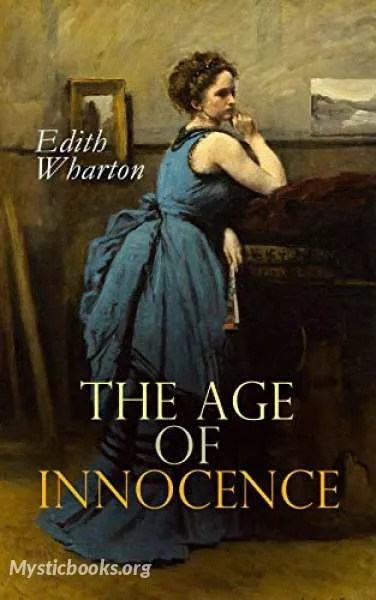
The Age of Innocence
'The Age of Innocence' Summary
Newland Archer, gentleman lawyer and heir of one of New York City's most illustrious families, happily anticipates his highly desirable marriage to the sheltered and beautiful May Welland. Yet he finds reason to doubt his choice of bride after the appearance of Countess Ellen Olenska, May's exotic and beautiful 30-year-old cousin. Olenska strikes Archer as the opposite of the innocent and ignorant May Welland. Ellen has returned to New York from Europe after scandalously separating herself (per rumor) from a disastrous marriage to a Polish count. At first, Ellen's arrival and its potential taint on the reputation of his bride-to-be's family disturbs Newland, but he becomes intrigued by the worldly Ellen, who brazenly flouts New York society's fastidious rules. As Newland's admiration for the countess grows, so do his doubts about marrying May, a perfect product of Old New York society; his match with May no longer seems the ideal fate he had imagined.
Ellen's decision to divorce Count Olenski causes a social crisis for the other members of her family, who are terrified of scandal and disgrace. Living apart can be tolerated, but divorce is unacceptable. To save the Welland family's reputation, a law partner of Newland asks him to dissuade Countess Olenska from going through with the divorce. He succeeds, but in the process comes to care for her. Afraid of falling in love with Ellen, Newland begs May to elope and accelerate their wedding date, but she refuses.
Some weeks later, Newland tells Ellen he loves her; Ellen corresponds, but is horrified that their love will hurt May, so does not want him to leave May for her. Newland receives May's telegram agreeing to wed sooner.
Newland and May marry. He tries unsuccessfully to forget Ellen. His society marriage is mediocre, and the social life he once found absorbing has become empty and joyless. Though Ellen lives in Washington and has remained distant, he is unable to cease loving her. Their paths cross while he and May are in Newport, Rhode Island. Newland discovers that Count Olenski wishes Ellen to return to him, but she has refused, although her family wants her to reconcile with her husband and return to Europe. Frustrated by her independence, the family has cut off her money, as the count had already done.
Newland desperately seeks a way to leave May and be with Ellen, obsessed with how to finally be with her. Despairing of ever making Ellen his wife, he urges her to run away with him, but she refuses. Then Ellen is recalled to New York City to care for her sick grandmother, who accepts her decision to remain separated and agrees to reinstate her allowance.
Back in New York and under renewed pressure from Newland, Ellen relents and agrees to consummate their relationship. However, Newland then discovers that Ellen has decided to return to Europe. Newland makes up his mind to abandon May and follow Ellen to Europe when May announces that she and Newland are throwing a farewell party for Ellen. That night, after the party, Newland resolves to tell May he is leaving her for Ellen. She interrupts him to tell him that she learned that morning that she is pregnant; she reveals that she had told Ellen of her pregnancy two weeks earlier, despite not being sure of it at the time. The implication is that May did so because she suspected the affair and that this is Ellen's reason for returning to Europe. Hopelessly trapped, Newland decides to remain with May and not to follow Ellen, surrendering his love for the sake of his child.
Twenty-six years later, after May's death, Newland and his eldest son are in Paris. The son, learning that his mother's cousin lives there, has arranged to visit Ellen in her Paris apartment. Newland is stunned at the prospect of seeing Ellen again. On arriving outside the apartment building, Newland sends up his son alone to meet Ellen, while he waits outside, watching the balcony of her apartment. Newland considers going up, but in the end decides not to; he walks back to his hotel without seeing her. Newland's final words about the love affair are "It's more real to me here than if I went up."
Book Details
Authors
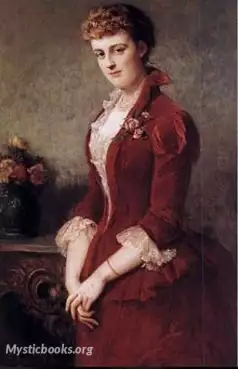
Edith Wharton
United States
Edith Wharton was an American novelist, short story writer, and designer. Wharton drew upon her insider's knowledge of the upper class New York "aristocracy" to realistically portray the lives and mor...
Books by Edith WhartonDownload eBooks
Listen/Download Audiobook
Related books

Pélerinage d'un nommé Chrétien, Le : écrit sous l'allégorie d'un songe by John Bunyan
« Le pélerinage d'un nommé Chrétien » est un roman allégorique de John Bunyan, publié en 1678. L'auteur rédigea cet ouvrage en 1675, alors qu'il était...
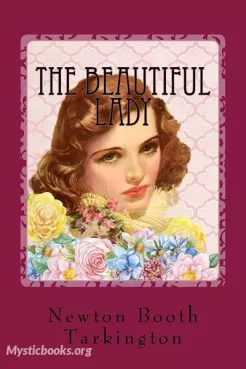
The Beautiful Lady by Booth Tarkington
Readers on an enchanting journey into the world of romance, unveiling a captivating tale filled with love, mystery, and unexpected turns. Written in [...
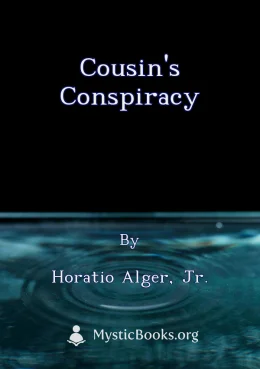
Cousin's Conspiracy by Horatio Alger, Jr.
Cousin's Conspiracy follows the journey of Ernest Ray, a young boy who sets out to right a wrong. His father was cheated out of his rightful inheritan...

Story of Ahikar by Ahikar
The Story of Ahikar is an ancient tale that has been passed down through generations in various cultures across the Middle East and Near East. It is a...

The Soft Side by Henry James
It is a novel that tells the story of a young girl's coming-of-age journey. Originally published in 1900, the book is still relevant today for its tim...

The Later Life by Louis Couperus
It tells the story of a wealthy Dutch family living in The Hague, focusing on the protagonist Constance van der Welcke and her struggles with her emot...

The Tree of Heaven by May Sinclair
This thought-provoking book explores the themes of feminism, societal expectations, and the quest for personal freedom. Published in 1917, "The Tree...

Wild Pastures by Winthrop Packard
It takes the reader on a journey through the American West. Published in 1930, the book is a vivid and descriptive account of Packard's experiences tr...
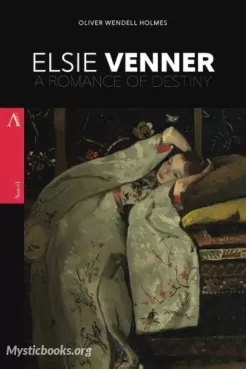
Elsie Venner by Oliver Wendell Holmes, Sr.
What if a young woman was born with the intelligence of a genius, but the instincts of a wild animal? In Elsie Venner, Oliver Wendell Holmes, Sr. exp...

The Little Match Girl by Hans Christian Andersen
"The Little Match Girl" is a literary fairy tale by Danish poet and author Hans Christian Andersen. The story, about a dying child's dreams and hope,...
Reviews for The Age of Innocence
No reviews posted or approved, yet...